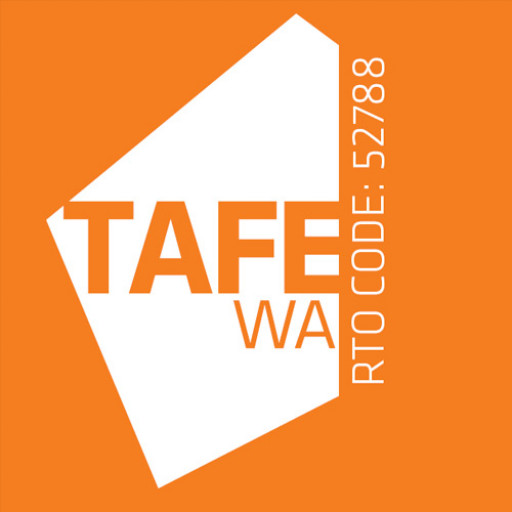Photos of university / #rmituniversity
The Bachelor of Supply Chain and Logistics Management at Royal Melbourne Institute of Technology offers students a comprehensive education in the fundamental principles and practices that underpin the effective movement of goods and services across global networks. This program is designed to equip graduates with the skills necessary to manage complex supply chain processes, optimize logistics operations, and develop innovative solutions to meet the evolving demands of international markets. Throughout their studies, students will explore a wide range of topics including procurement, transportation, inventory management, warehousing, distribution, and supply chain strategy. The curriculum combines theoretical knowledge with practical applications, fostering critical thinking and decision-making skills essential for leadership roles in supply chain management. Students will also gain insights into the impact of technology, such as automation, data analytics, and information systems, on modern logistics operations. The program often includes opportunities for industry engagement through internships, project work, and collaboration with leading companies, enabling students to apply their learning in real-world contexts. Graduates of this program are prepared for diverse careers in logistics companies, manufacturing firms, retail chains, consulting agencies, and government organizations. They may take on roles such as supply chain analyst, logistics coordinator, procurement officer, or operations manager. Emphasizing sustainability, ethical sourcing, and risk management, the program aims to develop responsible professionals capable of addressing global supply chain challenges. With accessibility to RMIT’s state-of-the-art facilities and a strong network of industry partnerships, students will have the essential tools and connections to excel in the dynamic field of supply chain and logistics management.
The Bachelor of Supply Chain and Logistics Management at RMIT University is a comprehensive program designed to prepare students for dynamic careers in the global supply chain and logistics industry. This degree offers a blend of theoretical knowledge and practical skills, equipping graduates with the ability to manage complex supply chain operations, optimize logistics processes, and develop strategic solutions for modern business challenges.
Throughout the course, students will explore core areas such as procurement, inventory management, transportation, warehousing, and distribution. Emphasis is placed on understanding the role of technology and innovation in supply chain management, including the use of enterprise resource planning (ERP) systems, data analytics, and sustainable logistics practices. The program also covers risk management, supply chain finance, and ethical considerations, ensuring students are well-versed in the responsible management of supply chain activities.
The curriculum is designed to foster critical thinking, problem-solving, and leadership skills essential for managing supply chain functions efficiently. Students will have opportunities for hands-on learning through industry projects, internships, and collaborations with leading companies, allowing them to apply theoretical concepts to real-world scenarios. RMIT's strong industry connections facilitate networking opportunities and ensure that graduates are production-ready and highly sought after by employers.
In addition to technical expertise, the program emphasizes cross-cultural communication and teamwork, preparing students to work effectively in diverse, global environments. The course also provides pathways for further specialization in areas such as freight forwarding, international trade, or supply chain analytics.
Graduates of this program will be equipped to pursue careers in various sectors including manufacturing, retail, logistics services, government agencies, and consultancy firms. They will be prepared for roles such as supply chain analyst, logistics coordinator, procurement specialist, and supply chain manager. With Melbourne being a major hub for international trade and commerce, this degree positions students at the forefront of the evolving logistics landscape, ready to contribute to efficient and sustainable supply chain solutions worldwide.
An Australian bachelor degree or equivalent, or higher degree qualification, in virtually any field from a recognised tertiary institution. Students that do not fulfill the above admission requirement for the Accreditation Certificate, may be thought of with a minimum of 5 years work experience.
The Bachelor of Supply Chain and Logistics Management at RMIT University offers a range of financial options to support students throughout their studies. Tuition fees are published annually on the university's official website and vary depending on the student's residency status, with domestic students benefiting from subsidized fees under the Australian Government’s Subsidised Programs. International students are required to pay full tuition fees, which are typically higher than those for domestic students. For the 2023 academic year, the approximate annual fee for international undergraduate students enrolled in this program was around AUD 37,440. Domestic students’ fees are significantly lower due to government assistance, with rates around AUD 9,370 per year, under Commonwealth Supported Places (CSP).
Students are encouraged to explore government financial aid options such as HECS-HELP for eligible domestic students, which allows deferred payment of tuition fees until they are earning an income above a certain threshold. Additionally, FEE-HELP may be available for students who pay full fees upfront and wish to defer repayment. RMIT University also offers scholarships for exceptional students, which can significantly reduce the financial burden. Scholarships are awarded based on academic merit, leadership potential, and other criteria, and applicants are encouraged to apply early.
Students may also consider external funding sources, including government grants, private scholarships, and sponsorships. Part-time work opportunities are available on or near campus, enabling students to supplement their income during their studies. Financial planning assistance and counseling services are provided by RMIT’s Student Support services, helping students manage their expenses and explore available funding options.
Most students finance their studies through a combination of personal savings, family support, government loans, and scholarships. The university also offers tailored advice for international students regarding visa requirements and associated financial obligations. Overall, the university endeavours to make education affordable and accessible by providing transparent fee structures, comprehensive support programs, and a variety of financial aid options to help students successfully complete their Supply Chain and Logistics Management degree.
The Bachelor of Supply Chain and Logistics Management at RMIT University is designed to prepare students for dynamic careers in the global supply chain and logistics sector. This program offers a comprehensive curriculum that covers essential areas such as procurement, transportation, distribution, warehouse management, and supply chain strategy. Students will develop a deep understanding of how to efficiently manage the flow of goods, information, and finances across complex supply networks. The program emphasizes practical skills through industry placements, case studies, and hands-on projects, allowing students to apply theoretical knowledge to real-world scenarios. RMIT's close ties with industry partners ensure that the curriculum remains current with industry trends and technological advancements, including digital supply chain tools and sustainable logistics practices. Graduates will be equipped with the analytical, organizational, and managerial skills necessary to optimize supply chain operations and support business growth. The program also explores areas such as risk management, international logistics, and supply chain sustainability, reflecting the global nature of modern trade and commerce. Students have access to state-of-the-art facilities and resources, including specialized labs and software used in logistics operations. Upon completion, graduates can pursue careers in roles such as supply chain analyst, logistics coordinator, procurement manager, or distribution manager in various industries including manufacturing, retail, and transportation. The program aims to produce industry-ready professionals capable of contributing to the efficiency and responsiveness of supply chains worldwide.








